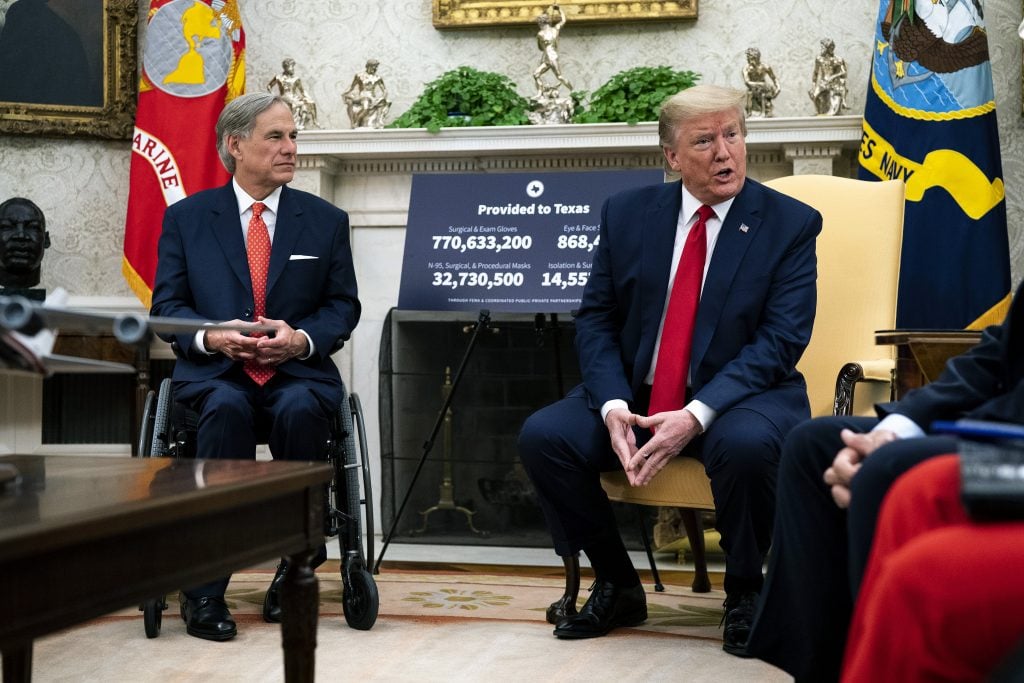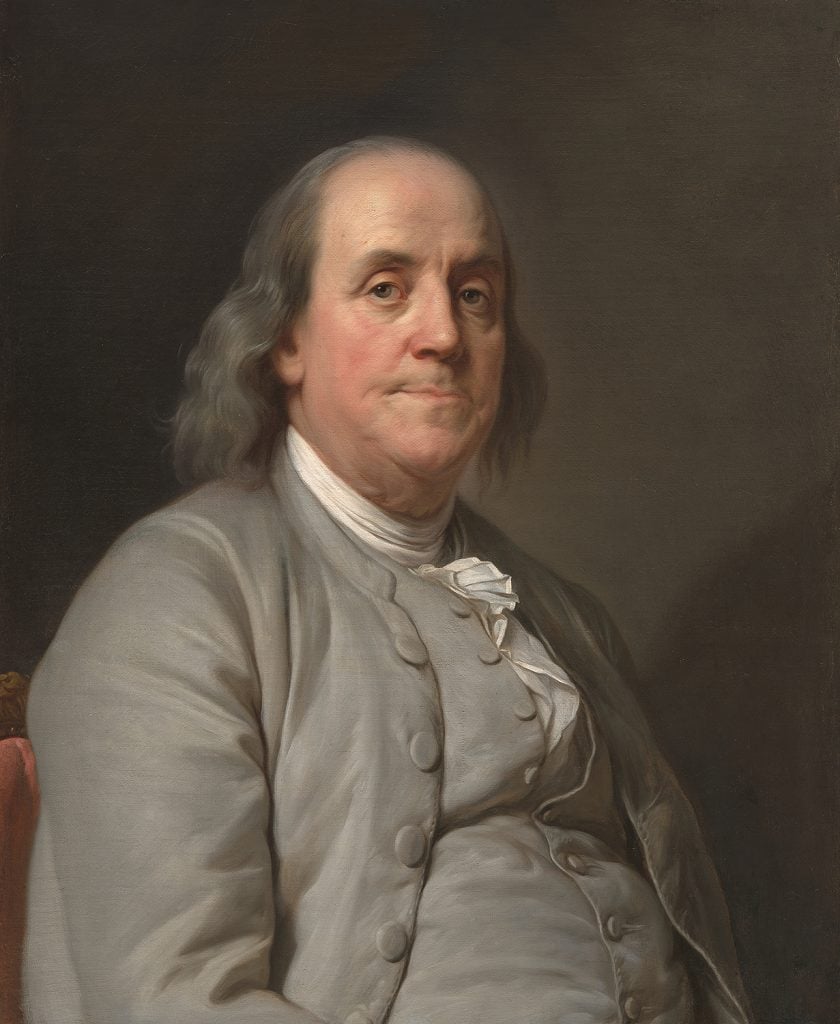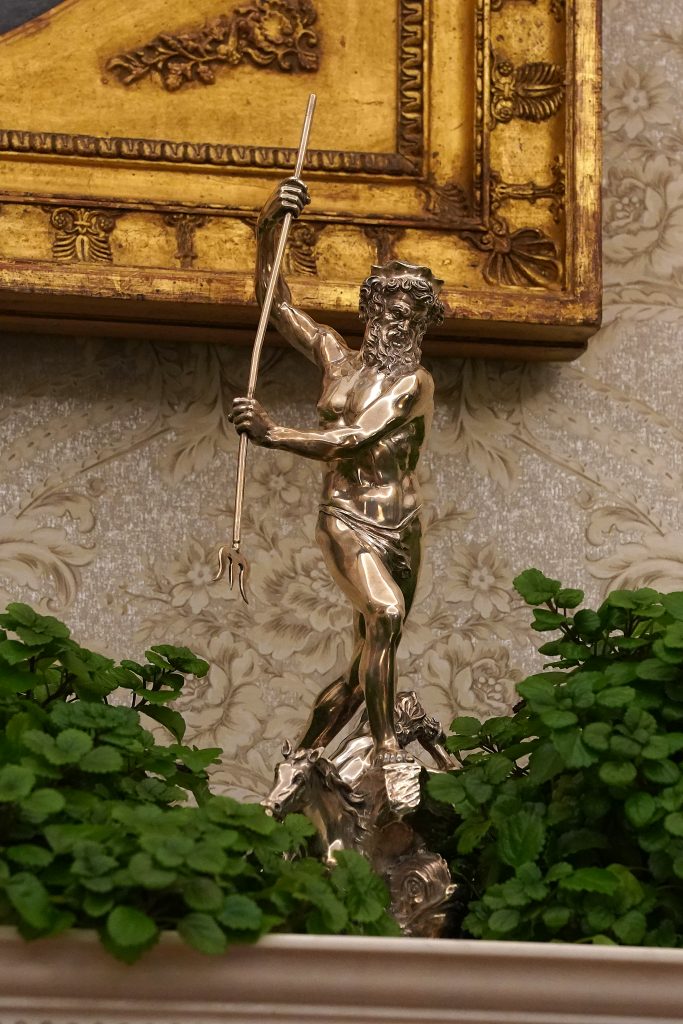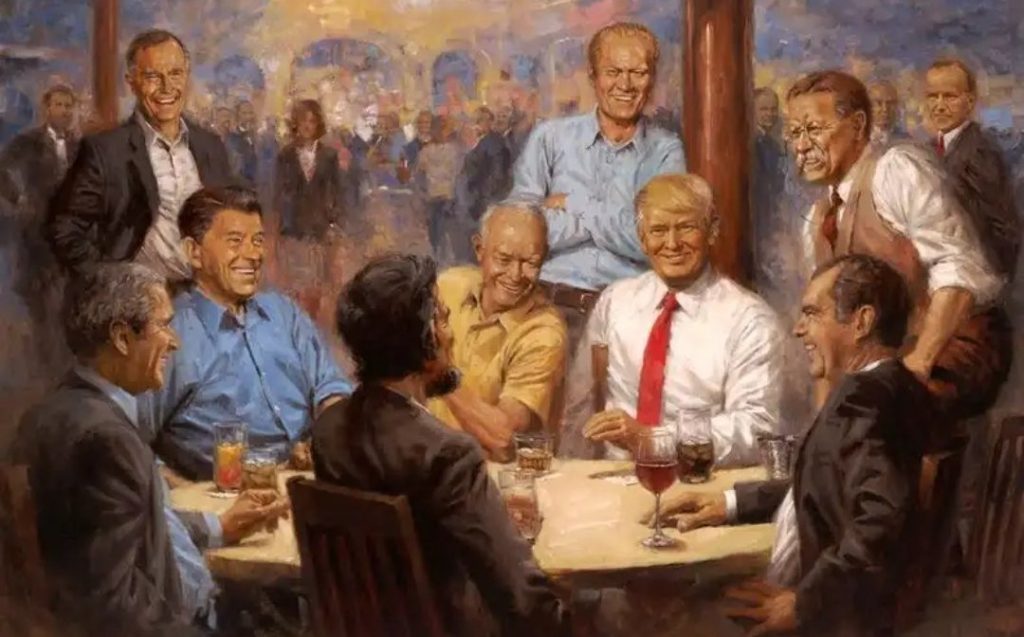Politics
President Trump Liked Artworks at His French Embassy So Much He Took Them Home. Too Bad He Has a Habit of Falling for Fakes
Trump went on the art-borrowing spree instead of visiting a military cemetery during a French state visit.

Trump went on the art-borrowing spree instead of visiting a military cemetery during a French state visit.

Sarah Cascone

US President Donald Trump’s taste in art has made headlines again—and it is clear that the nation’s commander-in-chief doesn’t seem to place much importance in owning the real deal. The artworks that Trump brought home from the official Paris residence of US Ambassador Jamie McCourt in 2018 were, it has been revealed, actually replicas of a historic Benjamin Franklin portrait and bust, as well as 20th-century silver figurines passed off as 16th- or 17th-century originals.
While in Paris, Trump had planned to make an official visit outside the city to the Aisne-Marne American Cemetery for fallen Marines. He cancelled the trip, worried rain would ruin his infamous combover—and unconvinced there was any merit to the engagement. “Why should I go to that cemetery? It’s filled with losers,” he told senior advisors, according to an Atlantic report that has been dissected endlessly on cable news in recent days.
Now, yet another tidbit has emerged about the trip: Instead of visiting the grave site, Trump spent the day admiring and summarily snatching art from the ambassador’s home, the Hôtel de Pontalba, loading up Air Force One with works he wanted to put on display at the White House.
“The president brought these beautiful, historical pieces, which belong to the American people, back to the United States to be prominently displayed in the People’s House,” White House spokesman Judd Deere told Bloomberg, which first reported the story.

Joseph Siffred Duplessis, Benjamin Franklin. Courtesy of the National Portrait Gallery, Smithsonian Institution; gift of the Morris and Gwendolyn Cafritz Foundation.
“It’s quite common for artwork and pieces to loaned and exchanged between government buildings, which is the case with these items,” a White House official told People. “These items… were sitting in rooms in the ambassador’s residence where nobody saw them.”
Back in Washington, DC, White House curators delivered some bad news: the Franklin portrait by Joseph Siffred Duplessis was actually a copy. The original was just down the street, at the National Portrait Gallery. The museum proceeded to loan the genuine article, previously on view in its galleries, to the White House, in March 2019, through February 1, 2021. (A spokesperson for the National Portrait Gallery did not have information about the whereabouts of the copy.) The Franklin bust was also a replica, but Trump allegedly joked that the knockoff was better than the authentic version.
The silver figurines that caught the president’s eye, meanwhile, now grace the mantlepiece of the Oval Office. Depicting Greek gods, they are the handiwork of Neapolitan artist Luigi Avolio. According to the Artnet Price Database, his work has never found a buyer at auction, with presale estimates on four bought-in lots offered between 2015 and 2019 ranging from €2,000 ($2,239) to €20,000 ($23,000). (How that squares with a Bloomberg source’s appraisal that the works Trump picked out in Paris were collectively worth $750,000 is unclear.)

A statue of Poseidon stands on the mantle in the Oval Office. Photo by Chip Somodevilla/Getty Images.
Altogether, it’s something of an embarrassing anecdote, but at least this time, Trump wasn’t trying to pass anything off as a priceless masterpiece—which he’s done before.
Following the 2016 election, Trump gave an interview to 60 Minutes, sitting in front of what appeared to be a Pierre-Auguste Renoir painting hanging on the wall of the Trump Tower penthouse in New York. He had reportedly bragged to a New York Times reporter about owning the work, Two Sisters (on the Terrace), but the real painting by the Impressionist great is actually one of the jewels of the collection of the Art Institute of Chicago—as the reporter was quick to point out.

Andy Thomas, The Republican Club. Courtesy of the artist.
Another reproduction, of Renoir’s 1874 canvas La Loge (The Theater Box), is part of the decor at Melania Trump’s Fifth Avenue apartment, according to the New York Post—but the original is at the Courtauld Art Institute in London. The president is also said to have boasted to another reporter that a “Renoir” displayed in his private jet was “worth $10 million,” a claim that seems unlikely to be true.
Even in the case of less historic works, Trump isn’t necessarily concerned about whether or not it’s actually by the artist’s hand. When California Republican congressman Darrell Issa gave Trump a piece by Andy Thomas—also spotted on 60 Minutes, hanging in the White House dining room—it wasn’t actually a painting, but a “high-quality laser print” of The Republican Club, the artist told the Washington Post.
The work, priced between $55 and $1,700, shows Trump sitting around a club with historic Republican presidents, including Abraham Lincoln, Ronald Reagan, and Dwight D. Eisenhower.
Who needs the real thing if a knockoff looks close enough?